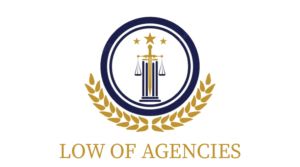Unexpected incidents can leave victims coping with not only physical discomfort but also the difficult chore of filing a personal injury claim. For the damages sustained to be fairly compensated, it is essential to comprehend the personal injury claim process. This article will guide you through the complex process of filing a personal injury claim by giving you a thorough review of all the processes required.
Receiving Medical Care
Your health should come first after an accident. Even if your injuries seem minor, seek medical assistance right once. In addition to ensuring your health, medical records are essential for proving your personal injury claim.
Amassing Evidence
As much information as you can from the accident scene. Included in this are images of the incident, your wounds, and any property damage. Police reports and eyewitness accounts are also excellent sources of proof for your claim.
Discussion with a Lawyer
The claim procedure can be greatly streamlined by hiring a skilled personal injury lawyer. An experienced lawyer can help you through the complexities of the law, offer professional guidance, and assess the strength of your case.
Making a Claim
You can start the claim procedure by completing and submitting the required papers with the help of your attorney. Writing a demand letter explaining the specifics of the event, your injuries, and the amount of compensation you are requesting is frequently required in this situation.
Settlement and Negotiations
After reviewing your claim, the insurance provider will make a proposal in response. To ensure that you receive a fair settlement, your attorney will negotiate on your behalf. The offer’s long-term effects, such as potential future damages, medical costs, missed wages, and other factors, must be carefully considered.
Potential litigation
Your lawyer can advise bringing a lawsuit if negotiations fail to produce a satisfactory settlement. If a settlement cannot be achieved through negotiation, this step comprises official legal actions and may result in a trial.
Investigation and Trial
Both parties build their cases and acquire information throughout the discovery period. Depositions, interrogatories, and document requests might be used in this. In the event that the matter goes to trial, your attorney will argue your case in front of the judge or jury, who will then decide the verdict.
Decision and Restitution
The court will issue a judgement outlining the compensation you are entitled to if the trial results in a verdict in your favor. Medical costs, lost wages, pain and suffering, as well as any pertinent damages, may be covered by this.
If applicable, appeals
If either side feels there were legal mistakes made during the trial, they may decide to appeal the decision. Appeals may lengthen the process, but if necessary, your lawyer will help you navigate them.
Finally, there are several complex elements in the personal injury claim process that call for cautious navigation. To obtain just compensation, it is essential to seek immediate medical attention, amass solid proof, consult an attorney, and comprehend negotiation strategies. You can improve your chances of a successful personal injury claim outcome by adhering to these measures and relying on qualified legal advice. Because every case is different, it is important to work closely with an experienced lawyer to ensure that your rights are upheld at all times.

